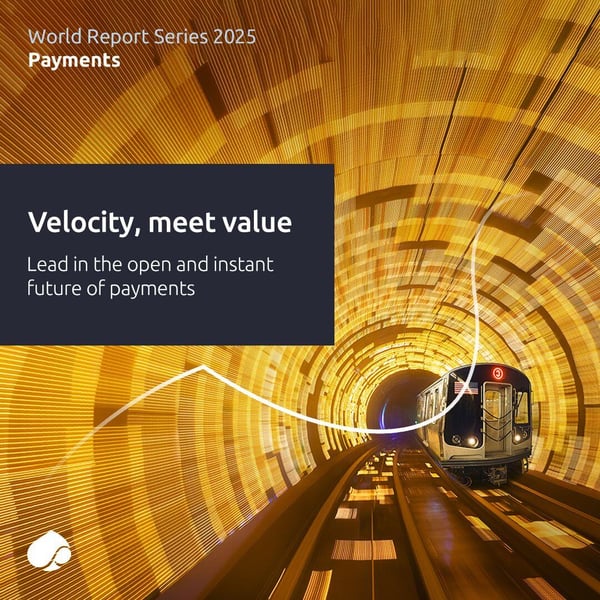In this bonus episode of The Banker’s podcast: Disruptive Voices, recorded at Sibos, Asia Editor for The Banker – Kimberly Long – and Chief Product Officer at BankiFi, Marijke Koninckx dive into the challenges BankiFi are solving and why we do what we do.
Plus, they have an important discussion about what can be done to get more women interested in the fintech industry.
Introductions and Exploring BankiFi
Kimberly: I'm speaking now with Marijke Konninckx, Chief Product Officer at BankiFi. Thanks for joining us. To begin with, let's talk about BankiFi: So, BankiFi focusses on addressing the pain points of SME’s, what issues can BankiFi work through that these customers might not get from traditional banks?
Marijke: Well, I think the traditional banks aren't offering any of the services that we help our banking clients promote to their SME’s. So that's one of the pain points that we actually try to resolve. The banks see that a lot of the SMEs are drifting further away from their bank as their trusted financial provider, and they leverage whatever their accounting package providers are offering and with embedded finance, those providers are also able to embed financial products into their offering. What we want to do is to help the banks – and rather than pushing their SMEs further away to those third-party providers, we want to bring those financial workflows into the bank's channels.
So, an SME can go to their bank, they can manage their accounts payables, accounts receivables; they can gain access and insights into their cash position going forward. But also, when the time's right, the bank can offer the type of lending they need to fill any gaps in their cash flow.
I think traditional banks are very transaction focused - you can check your balances; you can make payments - but that's now not how SMEs think and operate. They are thinking in terms ‘Once I’ve sent an invoice, how do I get paid for that invoice?’ And ‘how do I make sure I don’t get paid late?’ But also, once the payment has happened, they’ll be thinking how they can make sure that their accounting is updated and that they’ve got a clear picture on where they are as a business from a financial point of view? And that's what we do: We partner with banks to become the front door or the first port of call for the SMEs to run their business.
BankiFi as a Fintech beacon for the Northwest
Kimberly: BankiFi is based in Manchester in the north of England, which for anyone who is listening outside of the UK isn't necessarily traditional place for a fintech to be run from, it's often we'll see it in the kind of the famous Silicon Roundabout in London and Shoreditch, it's all very focused there. But I think it's an interesting prospect because it will bring more opportunities to the region. How do you think this really opens the prospect of fintech as an employment choice, especially into areas maybe where there isn't that traditional kind of background.
Marijke: Well, it's an interesting question because I think this was a valid point before Covid. We were able to work with people that didn't have an appetite to move to London for a broad variety of reasons and there's also a really good technical university in Manchester, which meant that we had access to young talent that wanted to join us and who believe in what we do.
I think it has slightly changed now since the pandemic and the ways of working have changed - it doesn't really matter where you work, it doesn't always have to be the usual suspects when it comes to places to work. As a fintech, finding the right people and finding good technical resources that also want to stay with you because, let's be honest, we want to build a long-term relationship with our colleagues as well. We are all in this for the long run and we also want our team to be in it for the long run too.
That's much harder if you are in a highly competitive space or location like London where people are just hopping jobs. I think it's worked very much in our favour.
Women in Fintech: What more can be done?
Kimberly: I think it's, it's interesting. It's only a good thing as well to get expansion and like you say, you. New players into the, into the area as well. To move on from that point to refocus to the main reason for the podcast, which is around women and women in fintech, do you think that more can be done to bring more women into the cutting edge of the fintech space? What more do you think can be done to bring women into working in these kinds of cutting edge fintech companies?
Marijke: I think it's going to take more than one thing. The very obvious element to me is having or being an example(s) and role model(s). I think we are very - I'm not going to say we're lucky because it's a choice that we have made – but we've built out a team where we have great diversity in the tech team, as well as in the leadership team
We have some great female engineers, and I believe it's by seeing other women taking on highly technical roles or operating in an industry that makes the difference. If we look around here at Sibos, there's still an awful lot of men here, it’s still far from 50/50. But we see more and more women coming into the industry, and I think it also shows that it's an attractive industry.
I've been in working in fintech for two decades; it's a long time and I still enjoy it a lot. I just hope that I can encourage and transpire my enthusiasm onto other people and show them that it's a cool, fun and interesting place to work. So for me, having more women working in fintech comes down to having role models and opportunities.
Kimberly: That’s great, thank you so much.
Marijke: You’re welcome!
Take a look at our latest Whitepaper.
As Marijke mentioned during The Banker's podcast, "we partner with banks to [help them] become the front door or the first port of call for SMEs to run their business." But it's not all that simple.
To explore the wider context of the fintech industry from digital 1.0 to 3.0, the evolution of the SME and banking relationship and the importance of being the 'front door' for small businesses, download out latest whitepaper to explore our insights.
.png)
-1.png)
.png?width=600&name=Rectangle%20316%20(3).png)
.png?width=600&name=Webinar%20assets%20(1).png)

